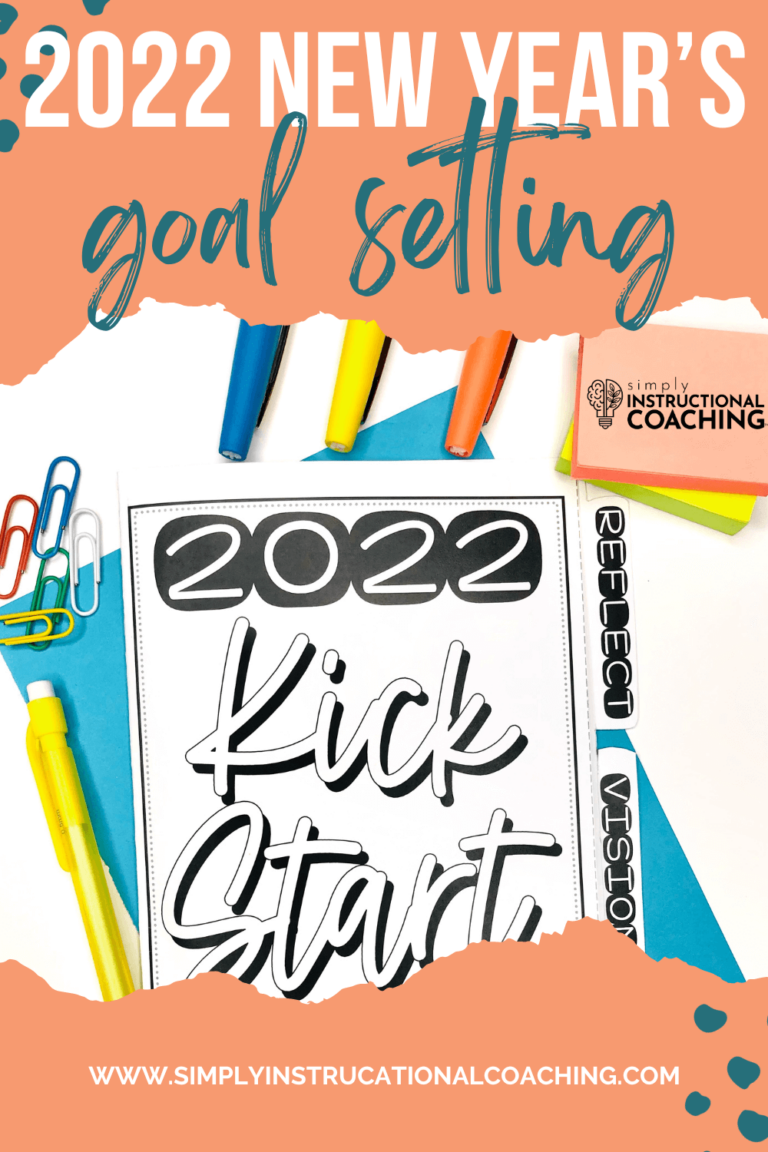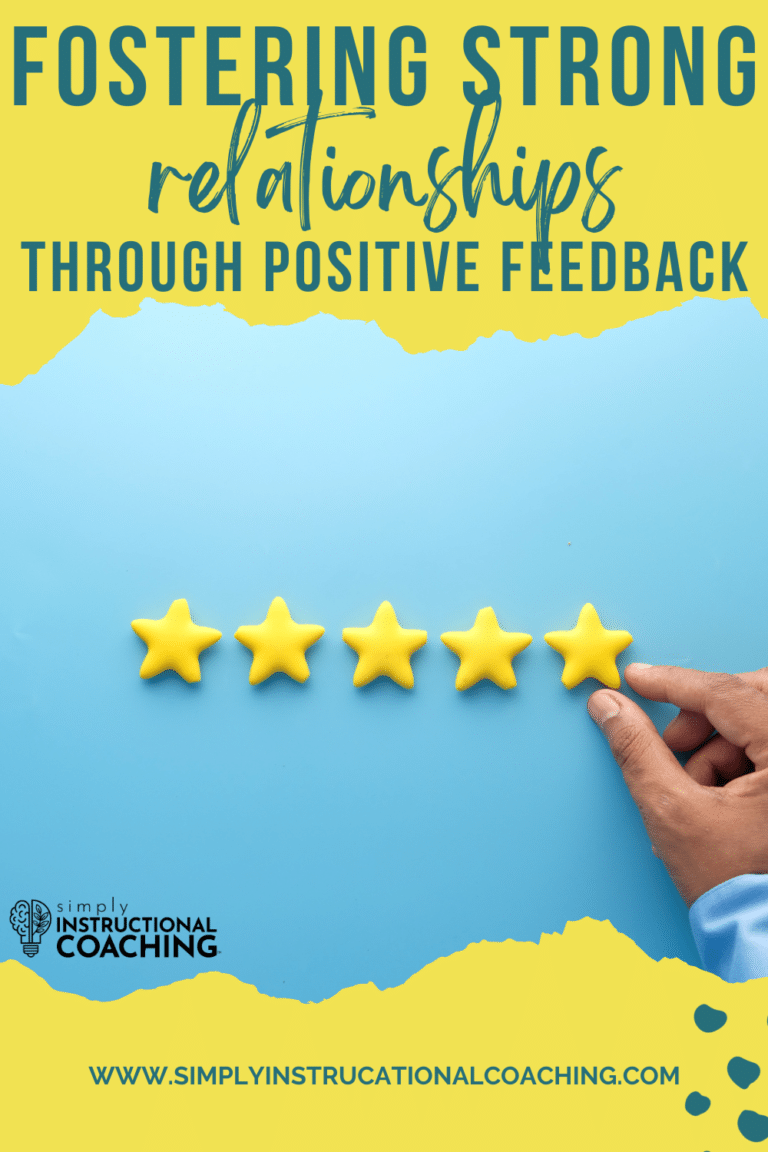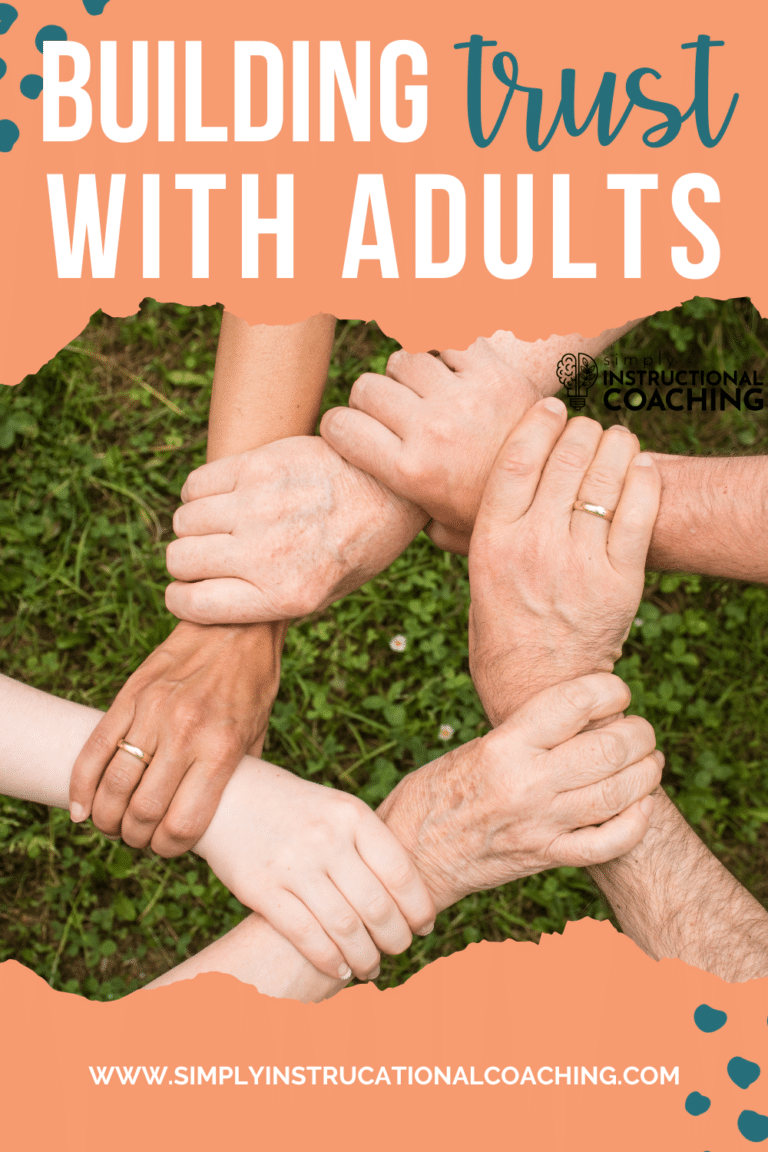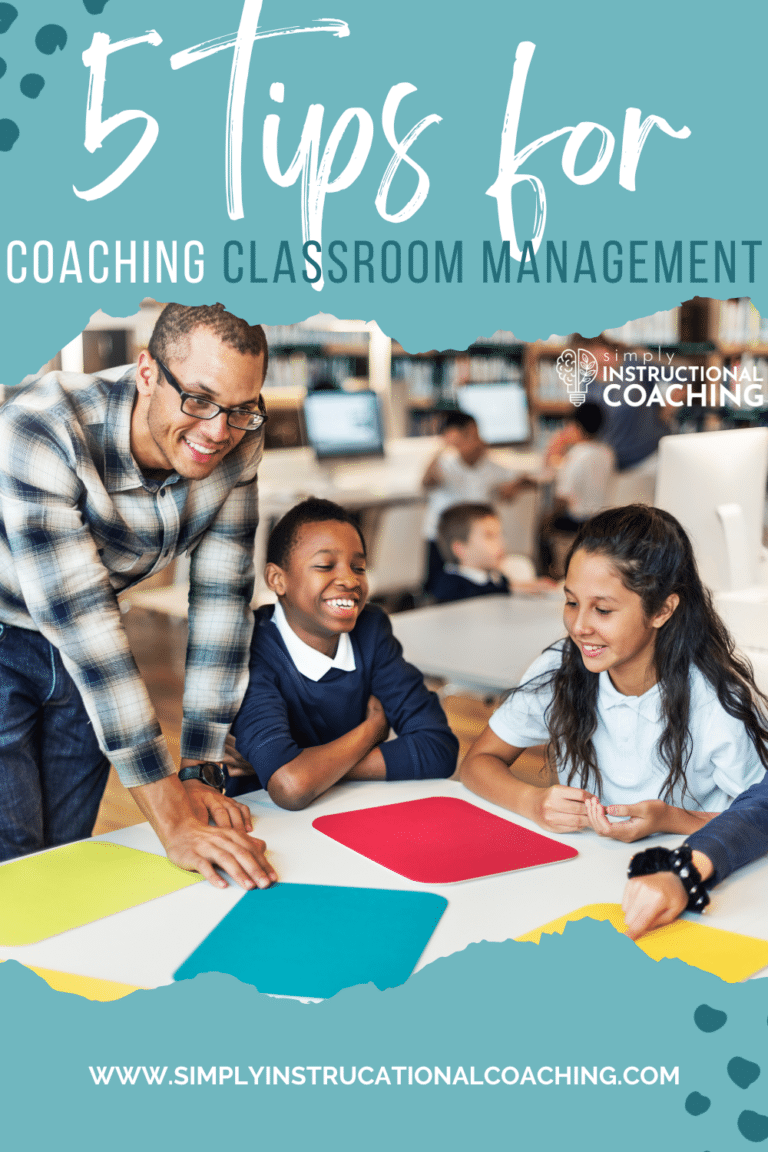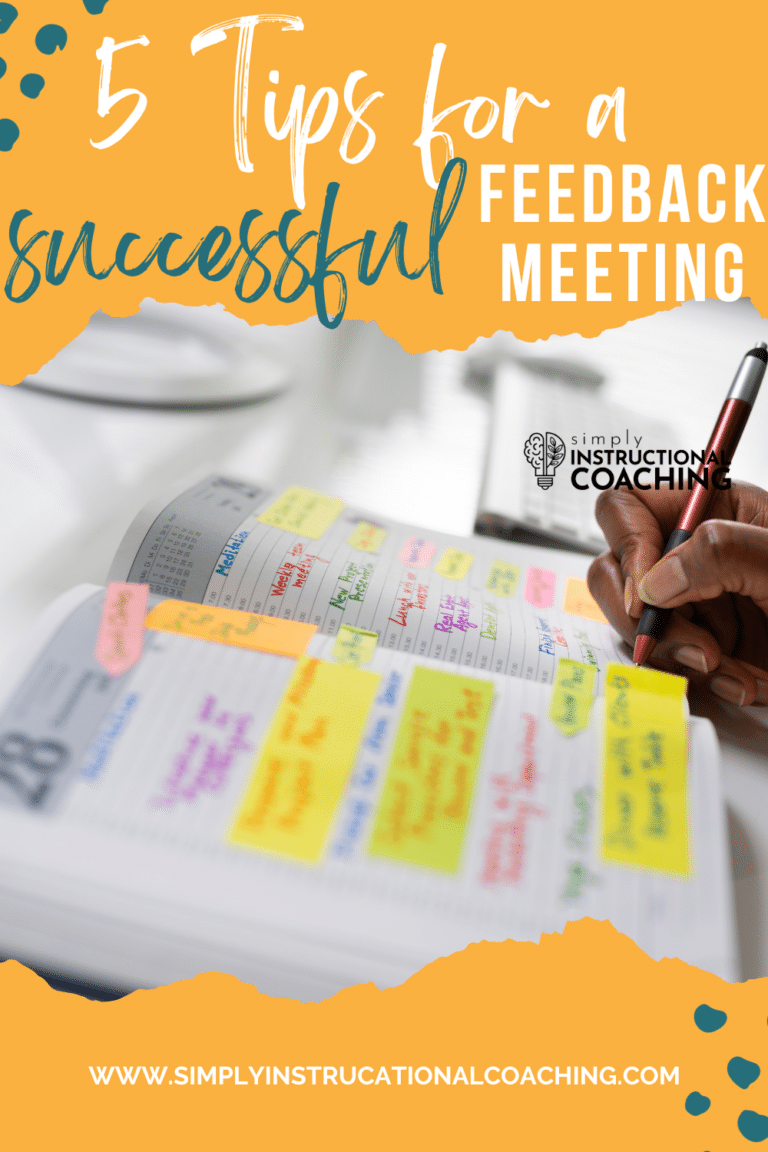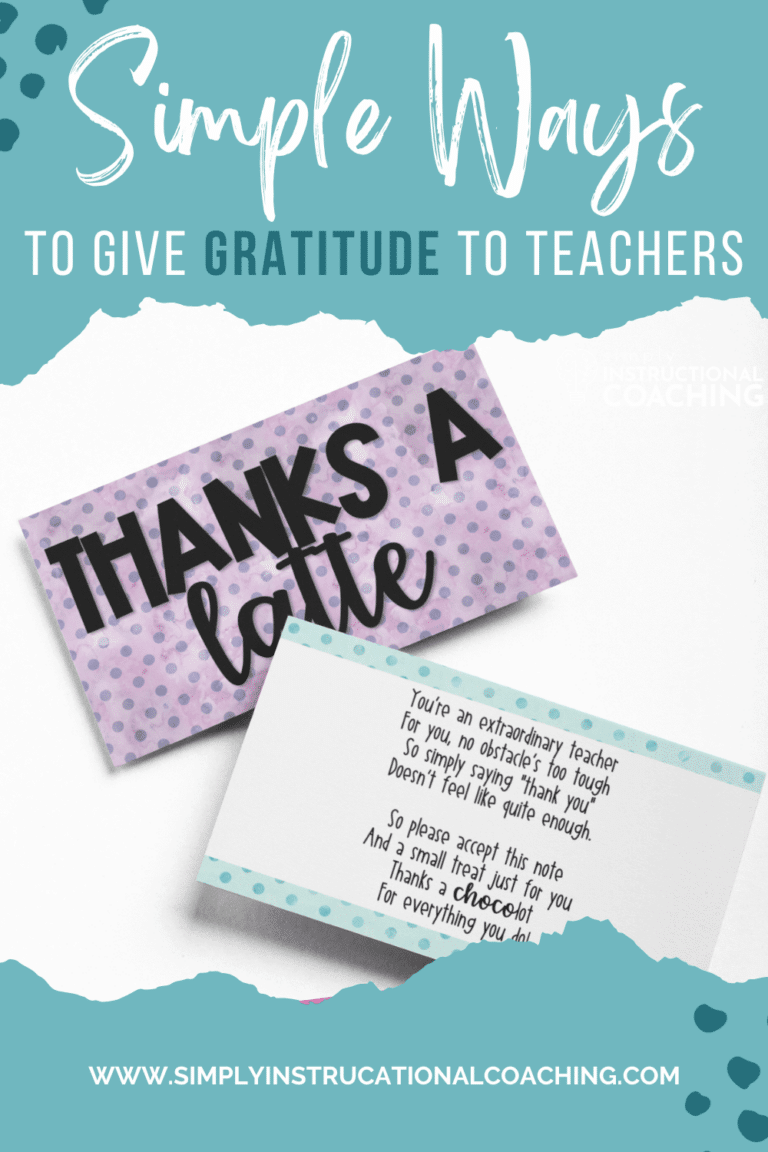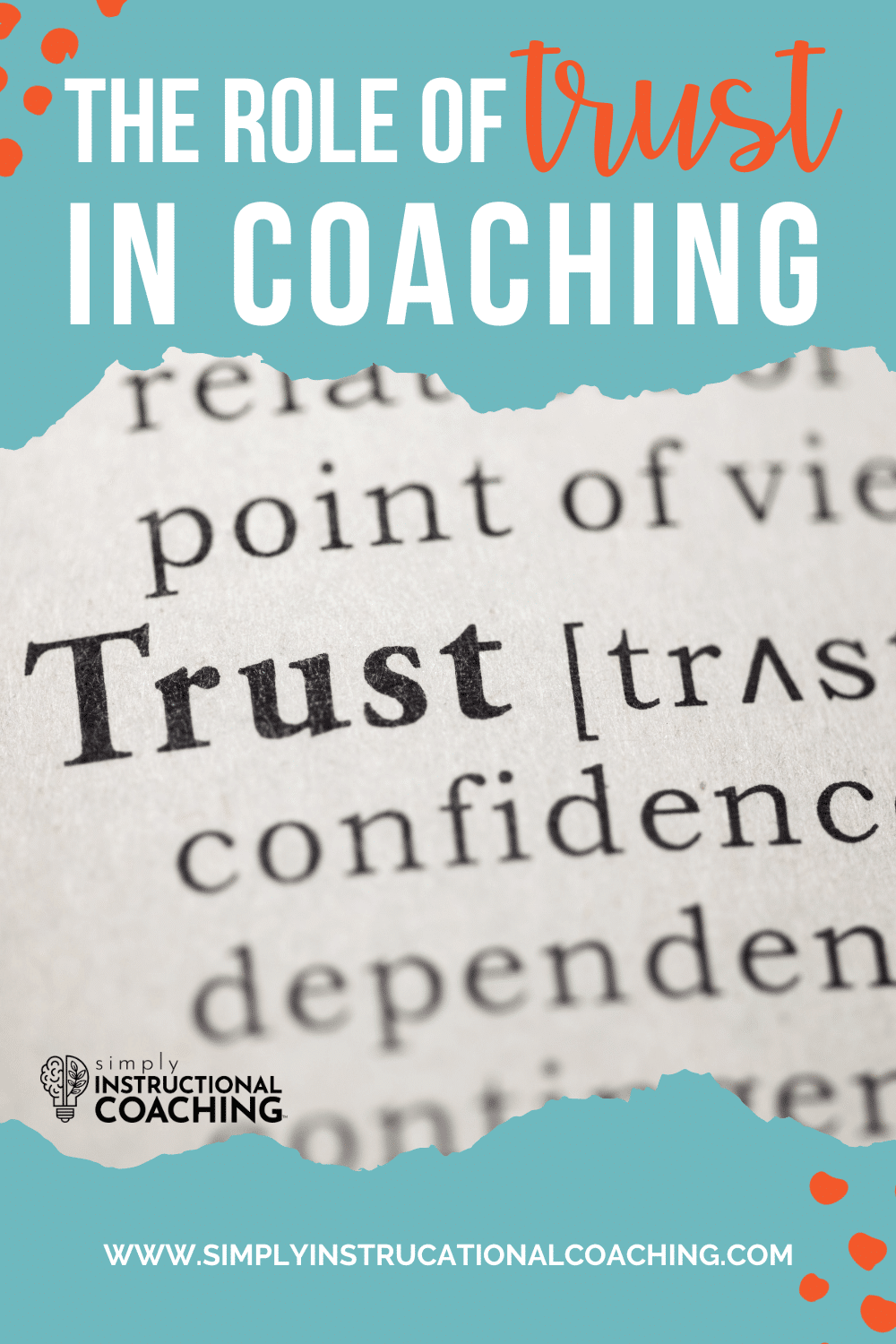
“Trust is not just leader-down, it’s follower-up, and it’s also sideways – trust among equals at every level so that nobody is gaining on anybody else. We are all bound together by trust”
(Colin Powell, 2003)
I can’t help but think about this quote every time that I sit down with a teacher. We constantly talk about how important it is for teachers to trust us, and it is! Yet, we rarely talk about the value of putting faith in our teachers. We can’t elevate them if we don’t truly believe in them.
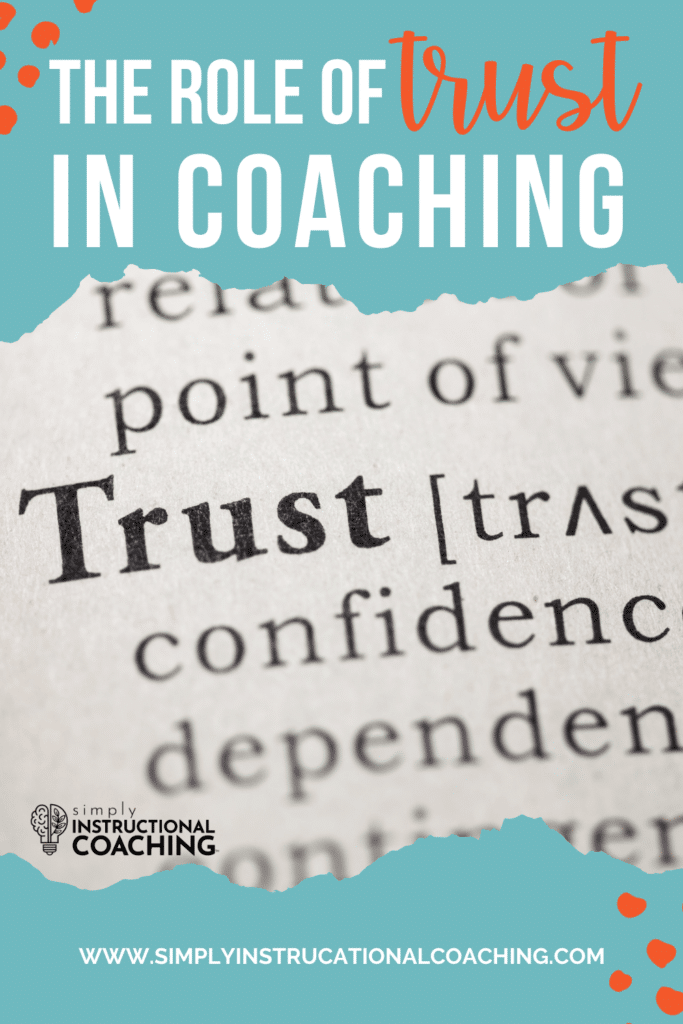
When I first became a teacher, I felt the need to be dominant in the classroom. I could not be wrong, could not be vulnerable, and would not tolerate deviation from the way I expected the class to run. I quickly learned that this was not an effective approach. My students weren’t willing to take chances, make mistakes, or do what I was asking them to. As soon as I began to trust them, to listen to them, and to give them an equal voice in the room, everything changed.
Teaching and coaching are about relationships and relationships are a two-way street. When I started coaching, I knew that I needed to show my teachers that I had faith in them.
In my first meeting with a teacher, I said, right off the bat, “You are the first teacher that I’m coaching. I’m going to make mistakes. Please be patient with me and tell me how things are going for you.” As soon as I said this, the tension melted away. In that meeting, she opened up to me about past trauma that affected her teaching. We were able to use this information throughout the coaching cycle.
This conversation led to me having many many more of these types of conversations with teachers. Now, I conduct these conversations at the beginning of every school year. I call it Cupcakes with Coach. It now has a cute name and I do cute themes but in the beginning, I just started with this is where I am, where are you type of conversations.
So how do we show teachers that we trust them? Here are a few of my go-to strategies.
Showing Teachers that We Trust Them
Be Vulnerable
Like I did, by showing vulnerability, you show that taking risks, trying new things, and asking for help can lead to powerful positive outcomes. You also show that you’re not perfect and that the coaching relationship will be a partnership.
Treat Teachers as Equals
Effective coaches work alongside teachers, playing the role of partners rather than resident experts.
Concede that Teachers Know Their Students Best
Every classroom is different and there are millions of ways to be a masterful teacher. We should start with the assumption that teachers understand their students and understand how they learn best. When we coach, we are enhancing teachers’ toolkits to deliver content and transfer knowledge to students. We can’t always assume that we know better than the classroom teacher. We can, however, pose questions to get teachers to think outside the box and enhance their lessons.
Let Teachers Drive Goal-Setting
If coaches trust that the teachers are the experts on their own students and their own abilities, the goals that they set for themselves will be much more meaningful. During your goal-setting conversations, ask questions that will get teachers to think about setting goals that will challenge their teaching as well as their students’ abilities in the classroom. I am a firm believer that teachers should set their own goals, they’ll be far more invested in collecting and analyzing data about their progress.
Don’t Just Tell Teachers What to Do
Rather than telling teachers how to “fix” their classrooms really take the time to listen and ask probing questions. This demonstrates that you truly believe that your teachers are capable of coming to their own conclusions.
When we let teachers make their own decisions, they know that we trust their judgment.
Give Strengths Based Feedback
When you provide feedback to teachers, show that you value the things they are already doing well. Find ways to weave the new strategies you’re suggesting into their existing teaching schema.
For example, I was working with a teacher last school year whose greatest strength was her rapport with students. They were very open and conversational with her. Her growth area was in assessment.
Together, we devised a rigorous way for her to assess her students through one-on-one conferences. We wrote rubrics together and performed the first few conferences together. This allowed her to use her strong relationships with students to get the assessment data she needed to help them advance.
By providing her feedback that recognized her strengths she trusted that I understood her and wanted to help her become even better.
Elevate Teachers to Become Mentors
Coaches must be cheerleaders for their clients and give them the confidence to go on to achieve on their own. I love this quote from Maxwell’s book, Mentoring 101, “If you desire to raise another person up, then you need to become one of her staunchest supporters. People can tell when you don’t believe in them”.
Give teachers the opportunity to share their skills with other teachers. Encourage them to present their successes during faculty meetings, lead PLCs, and mentor other teachers.
A Call to Action
I leave you with this question, from the same Colin Powell speech,
“What do we have to do tomorrow to make sure our people know that we believe in them, we trust them, and we are doing everything we can to give them the resources they need?”

